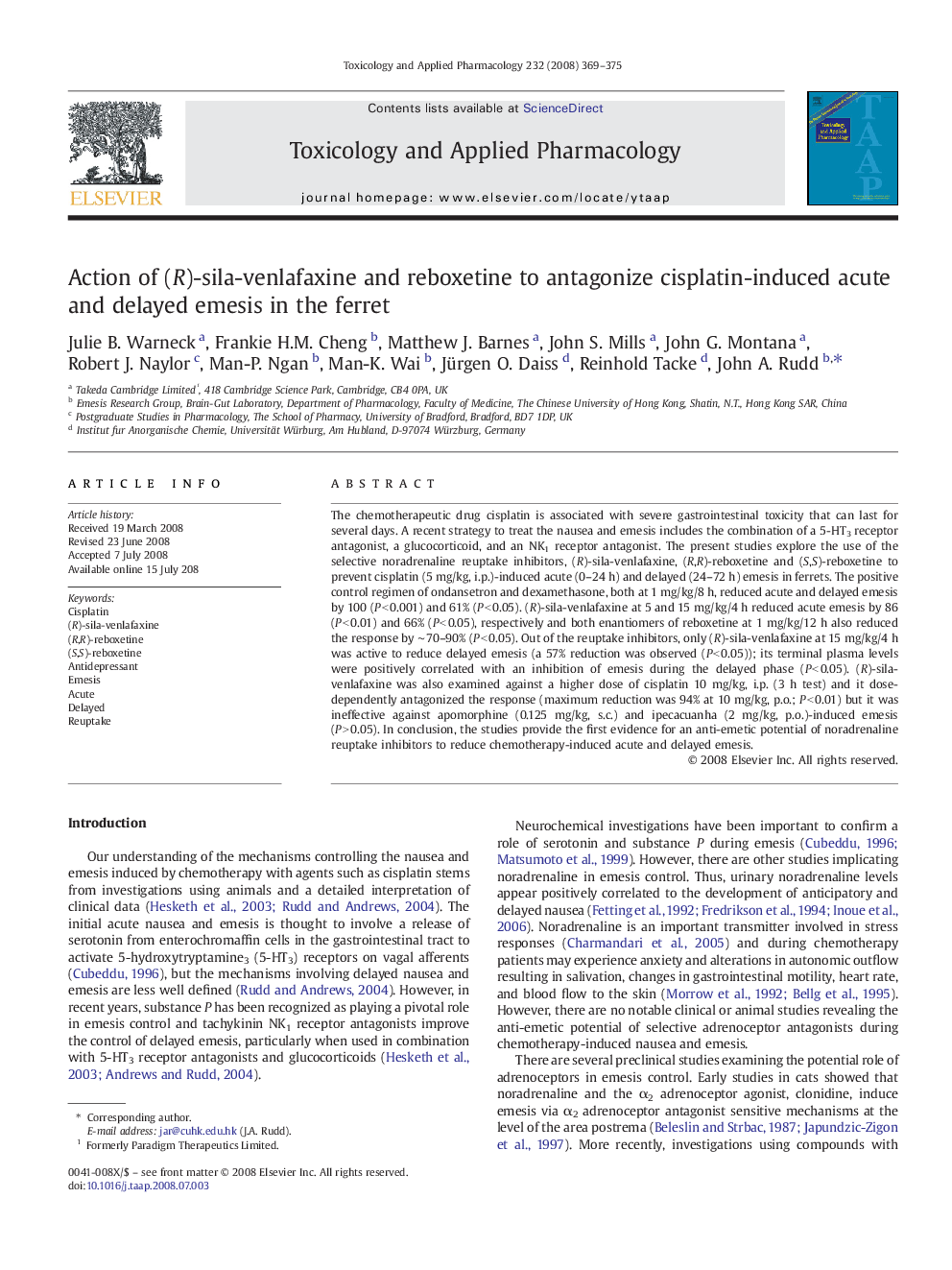| Article ID | Journal | Published Year | Pages | File Type |
|---|---|---|---|---|
| 2571043 | Toxicology and Applied Pharmacology | 2008 | 7 Pages |
Abstract
The chemotherapeutic drug cisplatin is associated with severe gastrointestinal toxicity that can last for several days. A recent strategy to treat the nausea and emesis includes the combination of a 5-HT3 receptor antagonist, a glucocorticoid, and an NK1 receptor antagonist. The present studies explore the use of the selective noradrenaline reuptake inhibitors, (R)-sila-venlafaxine, (R,R)-reboxetine and (S,S)-reboxetine to prevent cisplatin (5 mg/kg, i.p.)-induced acute (0-24 h) and delayed (24-72 h) emesis in ferrets. The positive control regimen of ondansetron and dexamethasone, both at 1 mg/kg/8 h, reduced acute and delayed emesis by 100 (P < 0.001) and 61% (P < 0.05). (R)-sila-venlafaxine at 5 and 15 mg/kg/4 h reduced acute emesis by 86 (P < 0.01) and 66% (P < 0.05), respectively and both enantiomers of reboxetine at 1 mg/kg/12 h also reduced the response by â¼Â 70-90% (P < 0.05). Out of the reuptake inhibitors, only (R)-sila-venlafaxine at 15 mg/kg/4 h was active to reduce delayed emesis (a 57% reduction was observed (P < 0.05)); its terminal plasma levels were positively correlated with an inhibition of emesis during the delayed phase (P < 0.05). (R)-sila-venlafaxine was also examined against a higher dose of cisplatin 10 mg/kg, i.p. (3 h test) and it dose-dependently antagonized the response (maximum reduction was 94% at 10 mg/kg, p.o.; P < 0.01) but it was ineffective against apomorphine (0.125 mg/kg, s.c.) and ipecacuanha (2 mg/kg, p.o.)-induced emesis (P > 0.05). In conclusion, the studies provide the first evidence for an anti-emetic potential of noradrenaline reuptake inhibitors to reduce chemotherapy-induced acute and delayed emesis.
Related Topics
Life Sciences
Environmental Science
Health, Toxicology and Mutagenesis
Authors
Julie B. Warneck, Frankie H.M. Cheng, Matthew J. Barnes, John S. Mills, John G. Montana, Robert J. Naylor, Man-P. Ngan, Man-K. Wai, Jürgen O. Daiss, Reinhold Tacke, John A. Rudd,
